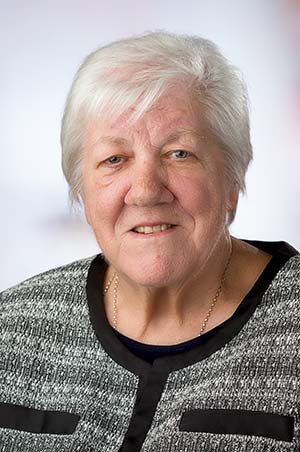Beti Thompson, PhD
Professor Emeritus, Cancer Prevention Program
Public Health Sciences Division, Fred Hutch
Member
Pathogen-Associated Malignancies Integrated Research Center (PAM IRC)
Dr. Beti Thompson has devoted her career to improving cancer prevention and screening in underserved populations across Washington state and beyond. Her research focuses on disease prevention through lifestyle changes such as diet, physical activity, smoking cessation and disease screening. She has been a pioneer of community-based research for more than three decades, working with diverse partners to develop and conduct culturally relevant research interventions to reduce cancer risk and increase cancer screenings. She has also mentored many Hispanic students through high school, undergraduate and graduate scientific studies.
Dr. Thompson is the founder and former director of Fred Hutch’s Health Disparities Research Center, which was expanded to the Fred Hutch/University of Washington/Seattle Children's Cancer Consortium’s Office of Community Outreach and Engagement. Her honors include the American Association for Cancer Research and Susan Komen Fourth Annual Health Disparities Scientist Award, the American Society of Preventive Oncology Joseph F. Fraumeni Jr. Distinguished Achievement Award, the Civil Rights and Environmental Justice Award from the Environmental Protection Agency, the Women of Color Mentor Award and U.S. Sen. Maria Cantwell’s Women of Valor Award. Dr. Thompson was also elected into the Washington State Academy of Sciences and invited to deliver the American Association for Cancer Research Distinguished Lecture on the Science of Health Disparities.
To recognize her contributions to disparities research, Fred Hutch in 2018 created the Beti Thompson Community Health Trailblazer Award and the Beti Thompson Cancer Health Equity Research Award.
Other Appointments & Affiliations
Professor Emeritus, Department of Health Services, University of Washington School of Public HealthProfessor Emeritus, Department of Health Services
University of Washington School of Public Health
Education
PhD, Sociology, Western Michigan University, 1981
MA, Sociology, Western Michigan University, 1978
BA, English and Sociology, Grand Valley State College, 1974
